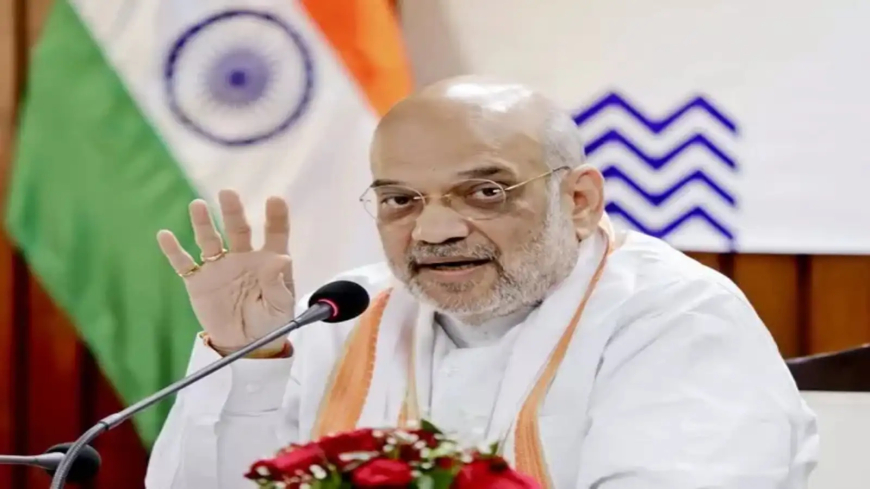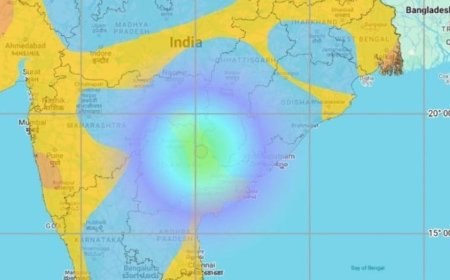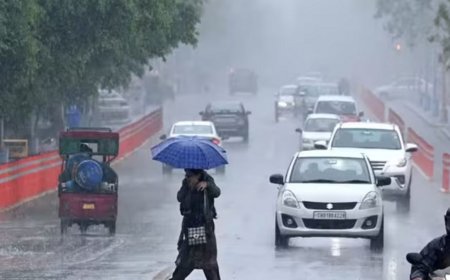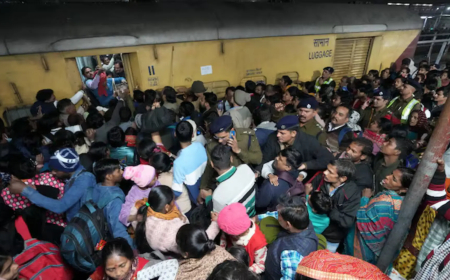India to Take Strong Measures Against Pakistani Nationals: Amit Shah Issues Directives to All State Chief Ministers
In a significant move, Indian Home Minister Amit Shah has instructed Chief Ministers across the country to take swift and strong actions against Pakistani nationals residing in India. This article delves into the implications of this decision.

India to Take Strong Measures Against Pakistani Nationals: Amit Shah Issues Directives to All State Chief Ministers
In a bold move that has captured the attention of the nation, Indian Home Minister Amit Shah has given clear and direct orders to Chief Ministers of all states to take decisive action against Pakistani nationals residing within India. This move is seen as a response to growing concerns over national security, illegal immigration, and the potential for cross-border terrorism. Let’s delve into the details of this significant development and understand what it means for both Indian and Pakistani nationals currently residing in the country.
The Decision by Amit Shah: What’s Happening?
-
Issuance of Orders:
Home Minister Amit Shah has officially instructed the Chief Ministers of every state and Union Territory in India to take strict actions against Pakistani nationals. This includes those living in the country under various categories, whether as refugees, workers, or visitors. The directive seeks to ensure greater control over individuals who may be involved in illegal activities or pose a threat to India’s internal security. -
National Security Concerns:
The decision stems from growing concerns about national security, especially in the wake of increasing tensions between India and Pakistan. There have been allegations of Pakistani nationals being involved in illicit activities such as espionage, terrorism, and other forms of anti-national behavior. The Home Ministry’s focus is to strengthen the internal security apparatus by monitoring and taking action against those who could potentially harm the nation. -
Pakistan’s Role in Security Threats:
India has long accused Pakistan of supporting terrorism on its soil. The Indian government has consistently raised concerns over Pakistan's role in harboring terrorist organizations and providing support to groups that target India. In light of these ongoing issues, the Indian government has felt the need to tighten its grip on Pakistani nationals living within its borders.
What Does This Directive Mean for Pakistani Nationals?
-
Increased Scrutiny and Surveillance:
With the new directive, Pakistani nationals in India can expect to face increased scrutiny and surveillance. Authorities will likely conduct detailed checks on the legal status of these individuals, with a particular focus on those who may be staying beyond their permitted duration or engaged in unauthorized activities. -
Crackdown on Illegal Immigrants:
This move is expected to bring about a crackdown on illegal Pakistani immigrants residing in India without proper documentation. Those who are found to be in the country without valid visas or have overstayed their permitted stay could face deportation or other legal actions. -
Heightened Security Measures in Sensitive Areas:
The government is also expected to implement heightened security measures, particularly in sensitive regions near the border. States with higher numbers of Pakistani nationals or those in strategic locations could see additional security operations and surveillance, aimed at preventing any potential threats. -
Possible Impact on Bilateral Relations:
While the focus is on ensuring national security, this directive could further strain India-Pakistan relations. The ongoing political tensions between the two nations could be exacerbated, with Pakistan possibly perceiving these actions as hostile or discriminatory. However, the Indian government has stressed that these measures are strictly aimed at protecting the integrity and safety of the nation.
Why Now? The Timing of the Directive
The decision to take action against Pakistani nationals at this point comes amidst several developments:
-
Escalating Tensions Between India and Pakistan:
Relations between India and Pakistan have been historically tense, with recent years witnessing a sharp decline in diplomatic ties. The two countries have fought multiple wars, and Pakistan’s alleged support for terrorist groups that target India has led to repeated confrontations. This directive is likely a part of India’s broader strategy to counter perceived threats from across the border. -
Security Threats and Intelligence Reports:
Intelligence reports have indicated that certain Pakistani nationals may be linked to groups operating against Indian interests. Given the growing security concerns, the government has decided to take a more proactive stance in monitoring the presence and activities of Pakistani nationals within the country. -
Domestic Politics and Nationalism:
The move also seems to align with the broader political narrative of national security and sovereignty. The ruling government, under Prime Minister Narendra Modi, has consistently emphasized its commitment to safeguarding India's security. This action is likely to resonate with a significant portion of the electorate who prioritize national security.
What Are the Possible Outcomes?
-
Strengthened Security Framework:
If implemented effectively, this move could result in a more secure India, especially in terms of countering threats posed by individuals from hostile nations. It is expected to enhance the overall security framework in the country, particularly in regions prone to security breaches. -
Deportations and Legal Actions:
Pakistani nationals who are found to be in the country illegally or involved in any criminal activities may face deportation. This could lead to several individuals being sent back to Pakistan, especially those who do not have valid documentation. -
Increased Tensions on Both Sides:
On the flip side, this move could exacerbate already tense relations between the two countries. Pakistan may see it as an unwarranted action and could retaliate with similar measures. This could lead to a further breakdown in diplomatic ties, making bilateral cooperation even more challenging. -
Impact on Refugees and Ordinary Citizens:
While the focus is primarily on security threats, there is a possibility that ordinary Pakistani citizens, including refugees, may find themselves caught in the crossfire. Those who are not involved in illegal activities or security threats could still face unnecessary difficulties in the form of increased monitoring and legal scrutiny.
What Are the Legal and Ethical Implications?
The decision to take action against Pakistani nationals raises several legal and ethical questions:
-
Human Rights Considerations:
While national security is a priority, India must ensure that the rights of individuals, especially refugees and those legally residing in the country, are not violated. Any actions taken should be in compliance with international human rights laws, including the right to seek asylum. -
Diplomatic Fallout:
Any drastic measures could have diplomatic consequences. The Indian government will need to tread carefully to avoid escalating tensions with Pakistan further, while also addressing security concerns at home. International reactions could vary, with some countries expressing concerns over potential human rights abuses or escalation of conflicts.
Conclusion: What’s Next for Pakistanis in India?
As Amit Shah’s directive unfolds, the situation for Pakistani nationals in India will be closely monitored. With orders to Chief Ministers across the country, the government is clearly signaling that it will take a strong stand on national security and illegal immigration. While this move aims to protect India's borders and citizens, it also carries significant political and diplomatic weight. How Pakistan responds and the impact it has on the lives of ordinary people remains to be seen.
As India continues to navigate this complex issue, it is crucial to ensure that while national security is prioritized, the rights and dignity of individuals are upheld in accordance with the law. The future of India-Pakistan relations will undoubtedly be shaped by the developments in the coming months.
Note: This article is based on the latest updates regarding the Indian government’s directives and actions concerning Pakistani nationals in the country.
What's Your Reaction?

































































